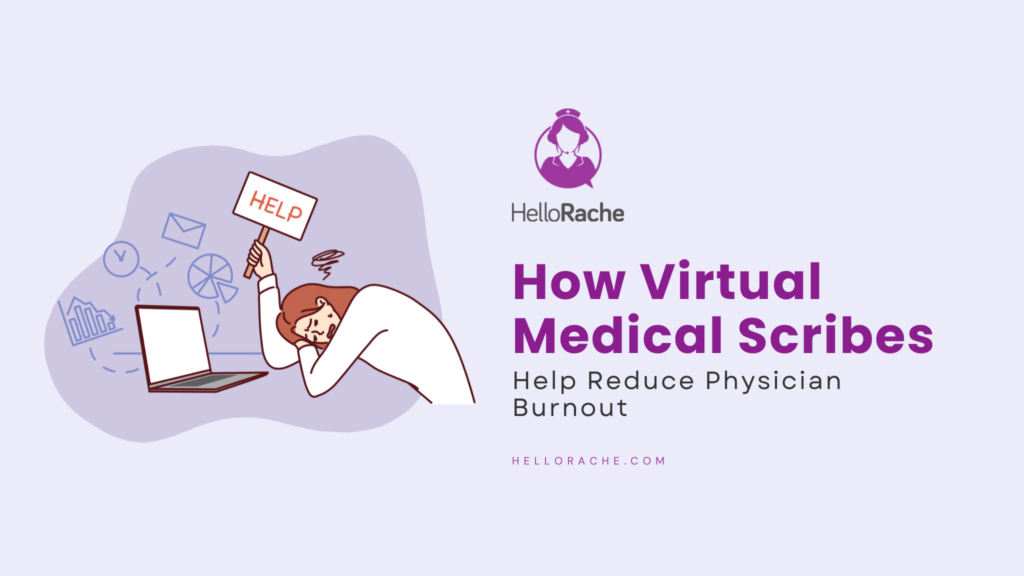
One of the most crucial elements in healthcare is dealing with the preauthorization process. Completing a prior authorization ensures that a patient not only gets the treatment they need, but also confirms that they are covered. But the preauthorization process is complex and time consuming. And this can place a huge drain on the resources of a medical practice.
The objective, therefore, is to simplify the prior authorization process. This is easier said than done. Your in-house staff will already be stretched by the demands of administration. On average, a practice completes 31 preauthorizations a week per physician. Given that a single preauthorization is labor intensive, you can appreciate how time consuming this can become.
Thankfully there is a solution. And it involves hiring virtual assistants. The popularity of these digital assistants has soared in recent years, particularly in the healthcare sector. Blessed with a varied range of skills, healthcare virtual assistants can lift the burden of preauthorizations. Planning, as ever, is critical. Virtual assistants need to be part of a bigger strategy. And that’s why we’ve put together a 3-step process to help you achieve this.
What is a Virtual Assistant?
Before we proceed further with our guide, it’s important to understand exactly what a virtual assistant is. They play a critical role in reducing your preauthorization workload, so let’s take a look at how they work.
Technology moves at a rapid pace and, over the last decade, this has enhanced connectivity beyond all recognition. And this has delivered major benefits to the world of remote working. These benefits have led to the creation of specialized roles such as healthcare virtual assistants. All they need to connect to your medical practice is an internet connection and a PC, laptop, or tablet. It’s a setup which is simple, but also includes the following benefits:
- Delegation Made Simple: Healthcare virtual assistants are there to lighten the workload on your medical practice. And this is the very definition of delegation. Any outstanding tasks can be handed over to a virtual assistant to handle. These can be as simple as data entry or as complex as charting medical records. It’s a strategy which ensures outstanding tasks are complete and frees up your in-house employees to focus on other areas of the business.
- Budget Friendly: Margins are tight in business, so it’s vital that savings are made wherever possible. Labor costs are one of the highest outgoings for a medical practice, but a virtual assistant represents major cost savings. Firstly, they are only employed to complete a specific task, so this is much cheaper than assigning it to a salaried employee. And, secondly, the contracts associated with virtual assistants do not include holiday pay, sick pay, or taxes.
- Flexibility: The demands of running a medical practice are intense and long hours are required to keep pace. But your in-house employees can’t be expected to work long shift after long shift; the risk of burnout is very real. A virtual assistant, however, is happy to work around your demands. So, for example, you can hire a whole team of virtual assistants to resume duties once your in-house employees finish at 5pm. This maintains the health of your employees and guarantees an extended period of productivity.
- Guaranteed Skills on Demand: It’s difficult to guarantee that all your in-house employees will have every skill required to run a medical practice. Naturally, any outstanding skills can be learned on the job. But, sometimes, time is of the essence. And this is where the variety of virtual assistants is most keenly felt. There will always be a virtual assistant available with the necessary skills for a specific job e.g. medical billing or processing preauthorizations.
You should now be starting to understand how a virtual healthcare assistant can make a real difference to your practice. But how do they fit into the demands of prior authorization?
3-Steps to Enhance Preauthorizations
All good business decisions require planning to deliver an effective strategy. The preauthorization process, as we know, is a complicated undertaking and one which requires significant focus. After all, the well-being of your patients is at risk. And, to provide a world-class service, your medical practice needs to protect its patients’ health. Therefore, prior authorization cannot be allowed to fall behind. And the best way to achieve this is with our 3-step process:
- Step 1 – Identify the Problem:
The procedures involved in approving a preauthorization are numerous and complex. As a result, most patients are required to wait for their medical procedures to be approved by insurance companies. Patients, of course, do not expect instant approval. But the complexities involved are contributing to lengthy delays. Exacerbating the situation is the already monumental demands of running a medical practice. So, the problem should be simple to identify: existing workloads need to be managed more effectively. - Step 2 – Evaluate the Pros and Cons:
There are two solutions available when it comes to tackling the preauthorization problem: working with in-house employees or employing virtual assistants. Both options come with a number of pros and cons, so it’s important that you understand what’s on offer:- In-House Employees: One of the major benefits of working with an in-house employee is that they will remain loyal to your company. And there is an enhanced level of engagement when you can deal with your employees face-to-face. A major problem, however, comes in the form of available talent in your local area. And the time taken to find this local talent will only serve to increase the duration of the prior authorization process.
- Virtual Assistants: The sheer number of virtual assistants at your disposal is a major benefit. You can find the right employee quickly and guarantee that they have the necessary skills. This helps to reduce the time taken to complete and submit preauthorizations correctly. Hiring a healthcare virtual assistant also reduces the overheads associated with prior authorizations. The only real drawback is that, due to the distance, there is less engagement between employer and employee.
Ultimately, the best option to go for in the preauthorization process is a virtual assistant. Completing a substantial number of preauthorizations is a labor intensive task, so time is of the essence. And, for a virtual assistant, this is no problem. Their unique employment status allows them to dedicate their targeted discipline to a specific task. And this guarantees that preauthorizations will be completed with speed and skill.
- Step 3 – Hiring a Healthcare Virtual Assistant:
You should, by now, understand the burden of preauthorizations and the ways in which you can tackle this. And this means that it’s time for action: hiring a healthcare virtual assistant. As with all major business decisions it’s important that the hiring process is conducted carefully. Yes, there are many virtual assistants who can handle the prior authorization process. But you need one who fits in seamlessly with your medical practice.
Final Thoughts
The process of waiting for a preauthorization to be approved can, for a patient, cause great anxiety. This is why your practice needs to reduce the time taken to complete prior authorizations. And the best way to achieve this is with a virtual assistant. It’s a solution which not only provides greater care for your patients, but also enhances your practice’s reputation. So, the time to hire a virtual assistant is now. And this is where Hello Rache can help. With a pool of amazing talent on offer, we can help you remove the burden of preauthorizations in your practice.




